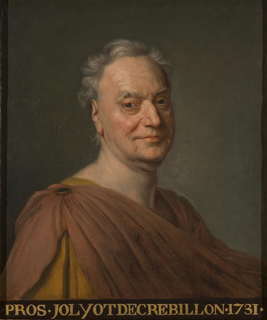A Quote by Jean Froissart
They [the English] amuse themselves sadly as in the custom of their country.
[Fr., Ils s'amusaient tristement selon la contume de leur pays.]
Related Quotes
Besides the progress of industry and technique, we see a growing discontent among the masses; we see, besides the expansion ("expansion,", Fr.) of instruction, distrust and hatred expanding among nations ("s'étendre la méfiance et la haine entre," Fr.), that vie with one another ("qui rivalisent à l'envi," Fr.), by the increase of their armies and the improvement of their engines of murder ("engins meurtriers", Fr).
Education has a tremendous power on man. Can't we see to which astonishing disciple the people of Sparte have submitted ("s'est plié", Fr.) for centuries, and this with a view to very petty purposes: purely outer greatness, the military predominace of Sparte. This example proves that man can everything on themselves when they want it ("peuvent tout sur eux-mêmes quand ils le veulent", Fr.); therefore it would only be a question of making them will the good.
It goes without saying that only inner greatness possess a true value ("une valeur véritable,", Fr.) . Any attempt to rise up (or at rising up, - "s'élever", Fr.) outwardly above others, or to want (or wish) to impose one's superiority, denote a lack of moral greatness, since we do not try to replace ("suppléer", Fr.) in that way (.... in French "par là", Fr.) to what, if we did really possess it, would have no need whatsoever to flaunt itself.
So many forces and resources would become available if States, aware (or conscious) of their true (or real) mission, would want to get on (or agree) to abolish every politics aiming at ("visant à", Fr.) expansion or hegemony; system that maintain among nations a a perpetual distrust and tension, impose on them (or force or compel, "leur impose", Fr.) formidable armies and crushing war budgets.

































